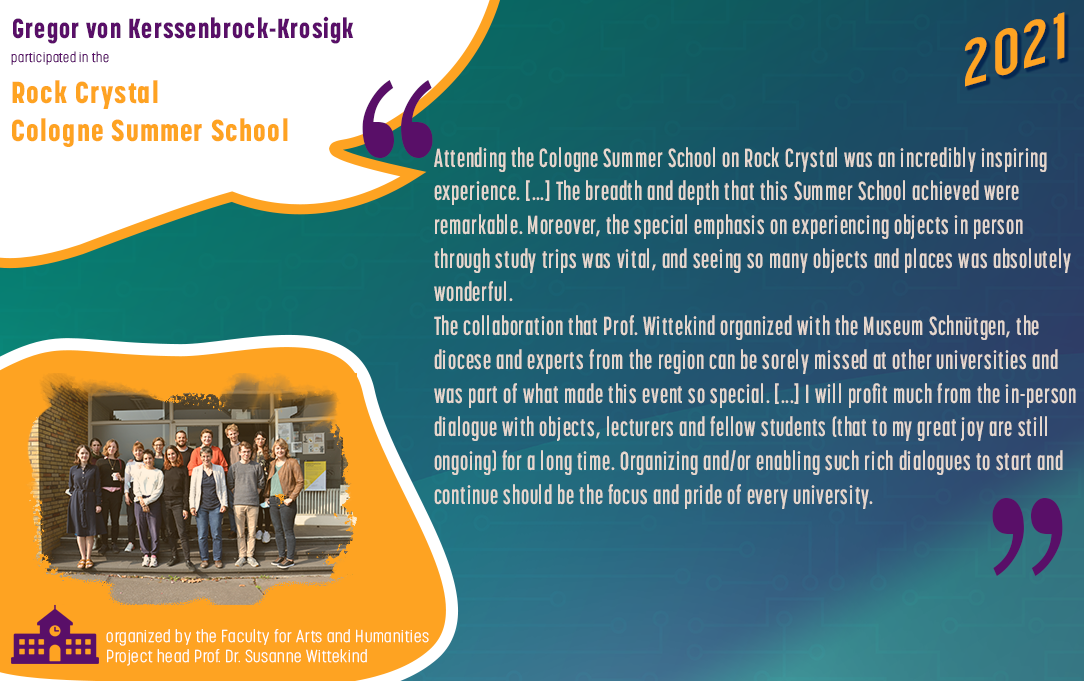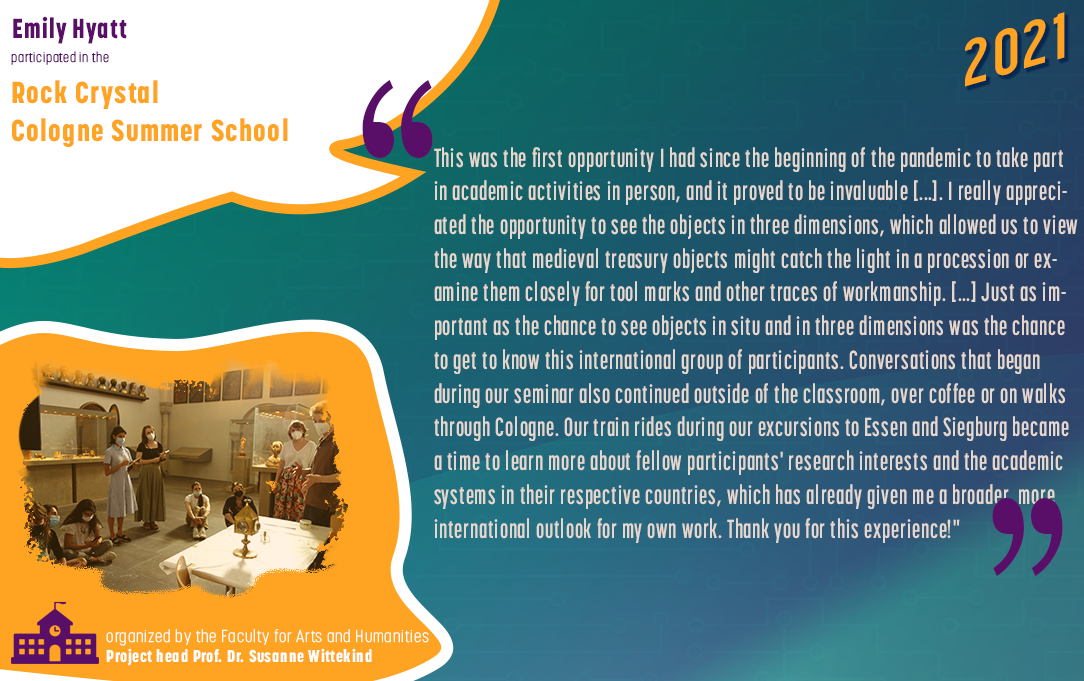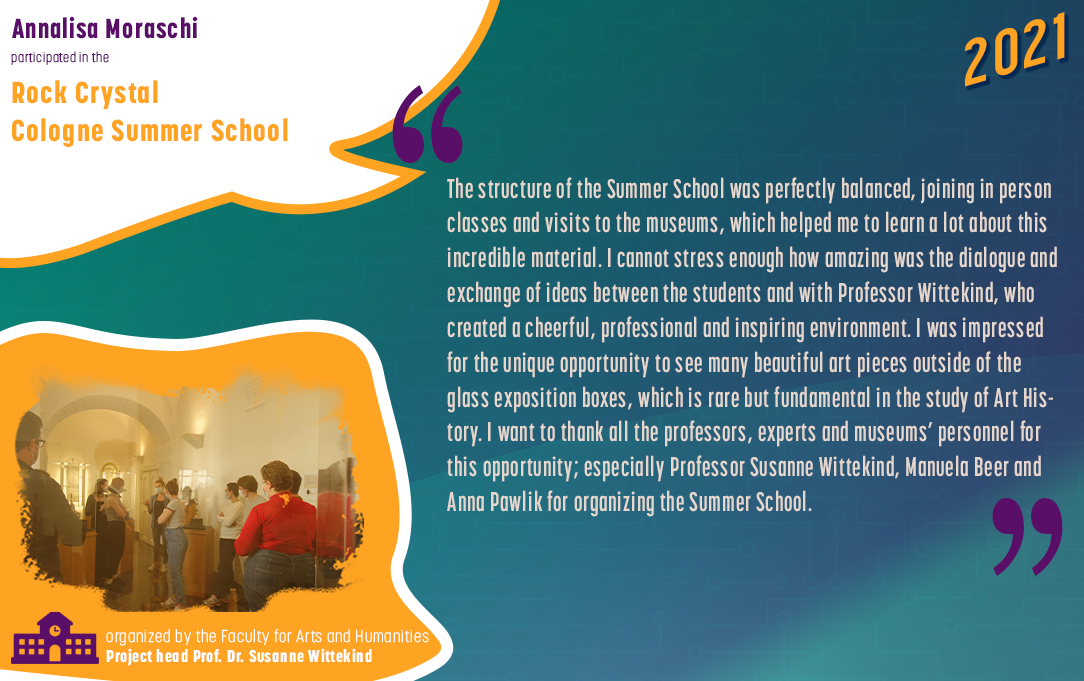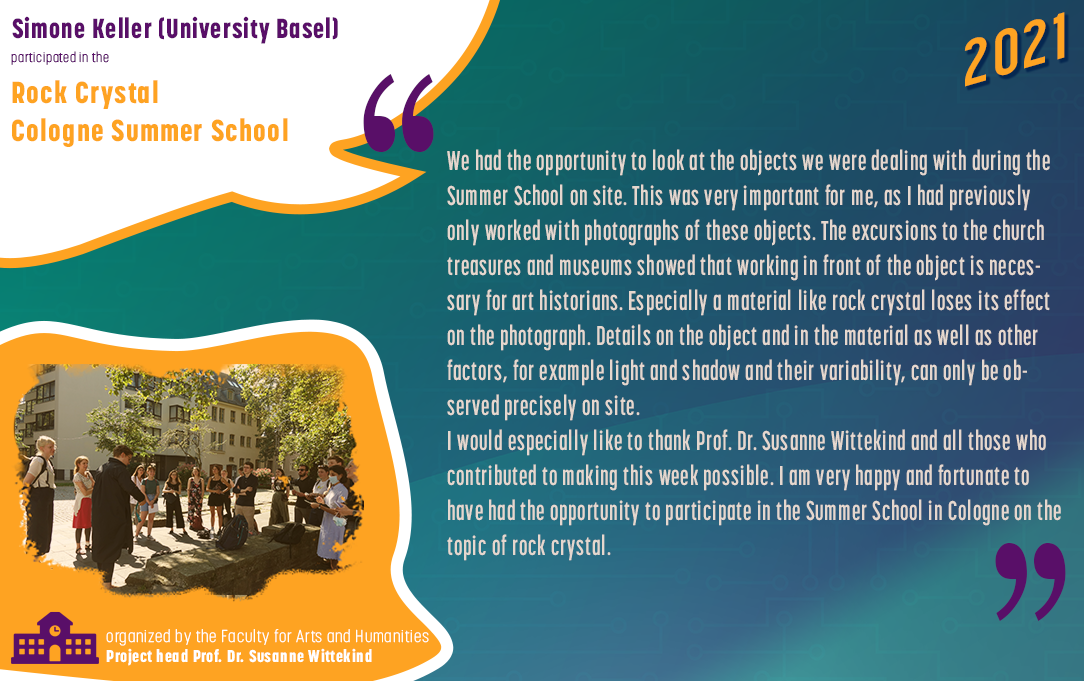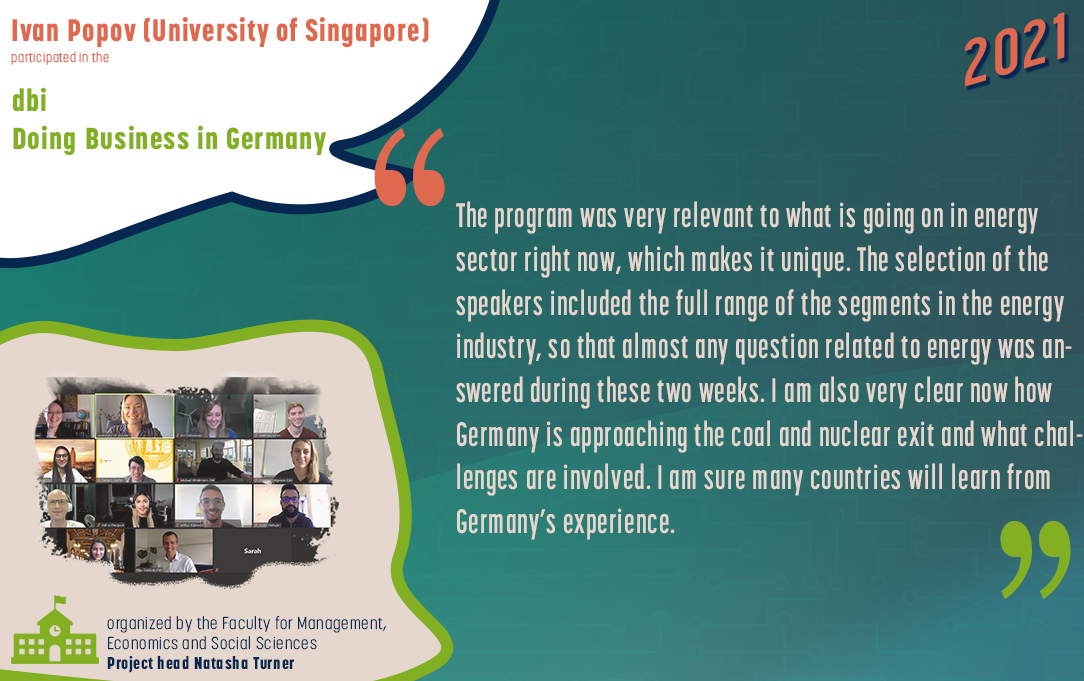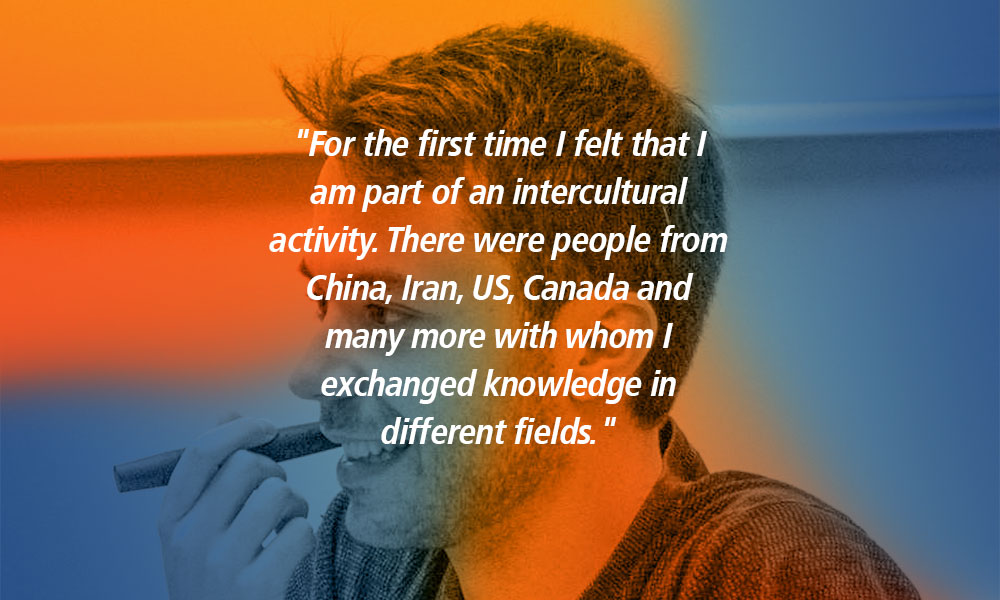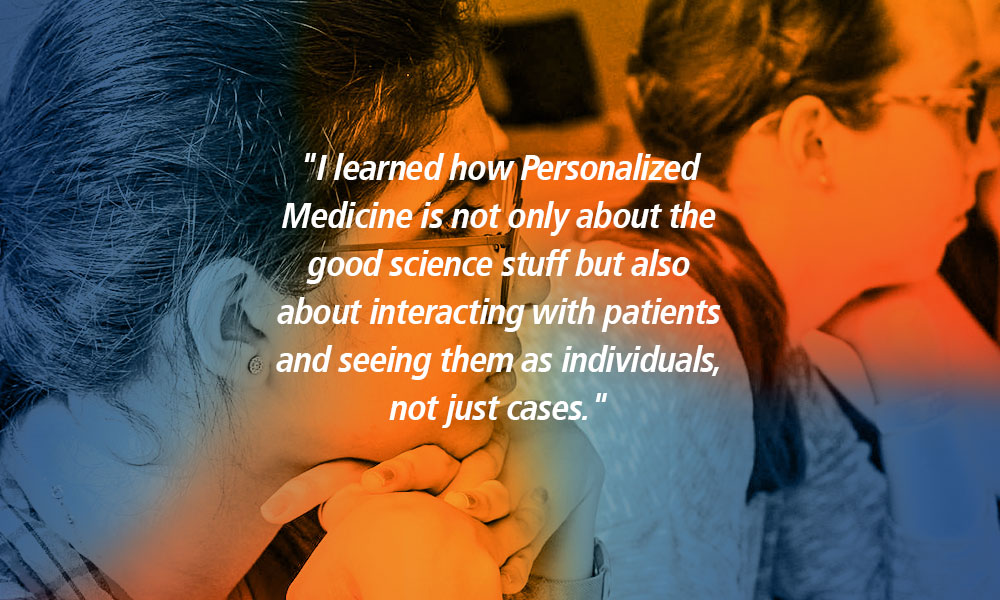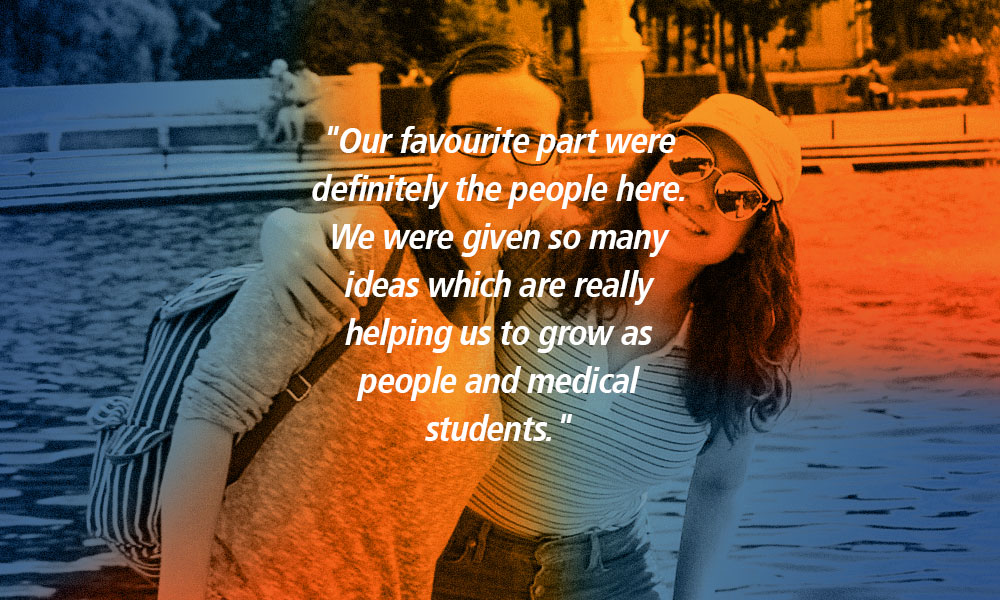In this section you will find authentic testimonials and feedback from our participants. The brand Cologne Summer Schools unites and coordinates a variety of different projects at the University of Cologne. Therefore, you can read feedback about projects from various academic fields. By clicking on the images you will be transferred to the organizer's page.
The fifteen participants of the Summer School came from the Czech Republic (Brno), Switzerland (Zurich and Basel), Israel (Tel Aviv) and the USA (Pennsylvania), from Cologne and neighbouring universities (Düsseldorf, Bochum, Heidelberg). Among them were Bachelor's and Master's students as well as doctoral candidates, but all were brought together by their interest in the current research discussion and in viewing medieval rock crystal artworks in the original. After the long period of isolated desk work caused by the pandemic, it was a wonderful experience to discuss together in one room with others, to exchange ideas and strengthen each other during the joint breaks in the late summer sunshine in front of the Institute of Art History.
Following the Rock Crystal summer school, an international conference on the same theme took place in the Museum Schnütgen, to which the participants of the summer school were invited. Some were able to attend in person and took the opportunity to talk directly with the international conference guests. Others followed the conference via video. All of them were well prepared by the summer school and were able to contribute their ideas and questions to the international expert discussion in this way.
For me, this was the first self-organised Cologne Summer School. It was a wonderful experience that motivates me to plan the next one for 2023.
Project head: Prof. Dr. Susanne Wittekind
The spring school took place with 33 participants from all over the world in a virtual lecture hall. Most of the students come from Iran, from the University of Kurdistan in Sanandaj and the University of Tehran. Many others are from the University of Cologne, but there are also students from Mexico and Cuba. In the first sessions we took a closer look at the creation of online questionnaires in LimeSurvey, as well as a training for the transcrip9on software ELAN. Ensuing, we conducted four interviews that offered an excitng experience to the participants, because they shared their life histories and stories of 1st and 2nd generation migration with a focus on their relationships to and perceptions of their heritage and their adopted languages.
They learned to hone their attention to specific linguistic phenomena which are key when discussing variationist sociolinguistics, such as code-switching and word order change, but also gained a broader cultural perspec9ve regarding the relevance of migration through the lense of personal experience and its role as a catalyst for language and societal change in today’s multilingual urban environments in both Germany and the U.S. A highlight of the Spring School for all of us were the virtual walks through Havana and Cologne after listening to a talk on the Cuban linguistic landscape and migration history and about multuculturalism in Cologne.
Project head: Prof. Aria Adli
Energiewende, climate change, climate neutrality, clean energy, the power of e and Power-to-X. All phrases that are quickly becoming a part of our standard vocabulary but what do these terms really mean and how do they look on a business, economic, political and even technical level? (E)MBA students from the Cologne WiSo Faculty’s exclusive partner universities explored the scope of these terms and related concepts through a combination of academic and practical experiences during the fifth annual Doing Business in Germany: Energy Economics programme. Supported by top-researchers from the University of Cologne’s Institute of Energy Economics (EWi), participants from a variety of professional backgrounds, including information technology, engineering and marketing, gained a broad overview of the energy economic field in Germany and the EU. They also delved deeper into specific topics, later used as their presentation topics, through an interview with an EWi researcher. Presentation topics included: the effects of coal exit law on the German electricity market, the future of mobility including the role of synthetic fuels and an exploration of the well-known dena study on climate neutrality.
Overall, the programme strengthened the universities connections internationally by highlighting the advances made at the EWI institute as well as its strong connection with local, regional and national players. Participants also gained a new understanding of energy economics, Germany and the universities’ role in the development of a greener, healthier, energy future.
Project head: Natasha Turner
